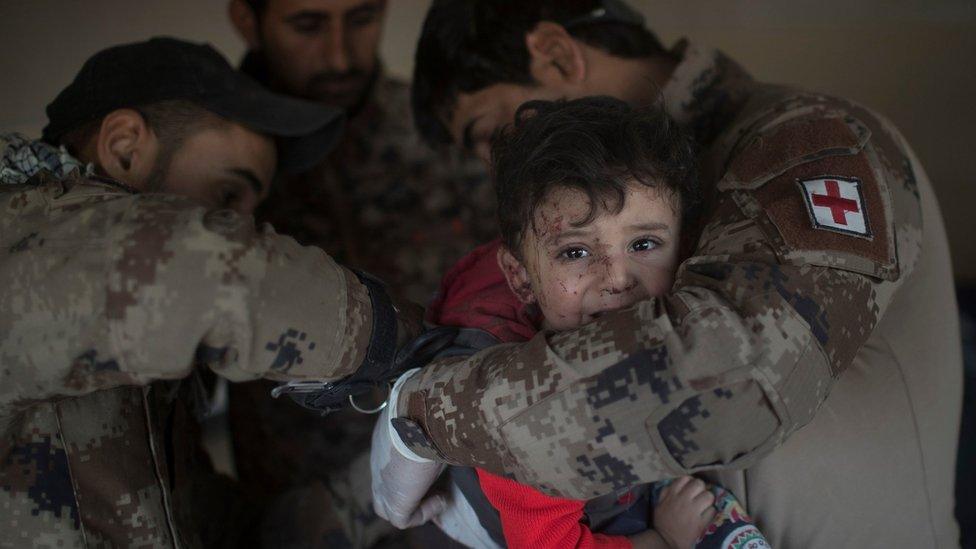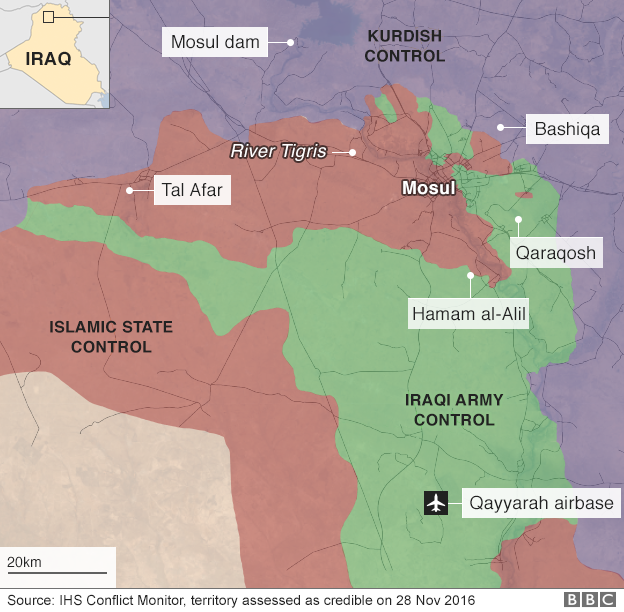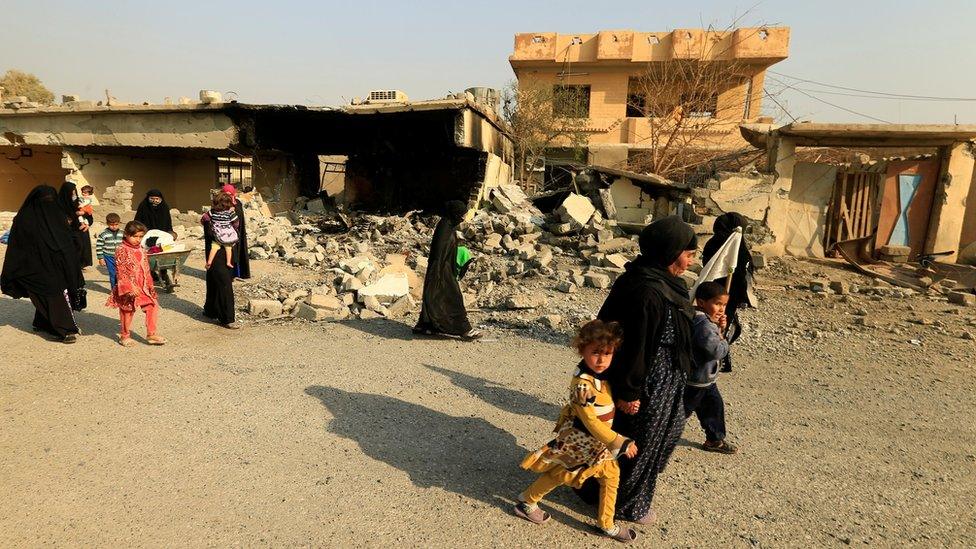Mosul Iraq battle: IS accused of shooting civilians
- Published

Civilians injured in IS attacks in eastern Mosul are being treated at Iraqi military field hospitals
Islamic State militants in Mosul have reportedly been killing civilians for not co-operating as the battle for control of the Iraqi city intensifies.
The UN says 12 civilians were shot dead on 11 November when they tried to stop militants launching rockets from the roofs of the homes in the Bakir area.
Militants allegedly killed 27 others suspected of passing information to Iraqi security forces.
The government launched an offensive to recapture Mosul six weeks ago.
Special forces and army units entered the city's eastern outskirts at the start of this month.
However, their progress has since been slowed by sniper fire, suicide car bomb attacks and the presence of more than a million civilians still living there.
A spokeswoman for the UN high commissioner for human rights, Ravina Shamdasani, said reports continued to arrive of serious breaches of international human rights and humanitarian law in and around Mosul.

"[IS] has been installing rocket launchers and placing snipers on the rooftops of civilian houses," she said.
"Those who refuse to allow their houses to be used in this way are threatened or killed. These families are effectively used as human shields, placed squarely in harm's way, caught between IS and Iraqi Security Force fire responding to rocket and sniper attacks."
Ms Shamdasani said IS was also continuing to abduct and forcibly move civilians, and to kill those it suspected of leaking information to the government.
Ayman Oghanna goes on patrol with the Iraqi government forces as they look for civilians
Reports suggest that on Friday, militants publicly shot to death 27 civilians in Muhandiseen Park, in the north of Mosul, she added.
There have also been reports of IS shooting at fleeing civilians, including one from 22 November of an IS sniper killing a seven-year-old child who was running towards troops in the eastern Adan district.
Human Rights Watch meanwhile said, external on Tuesday that an Iraqi government or US-led coalition air strike targeting IS militants south of Mosul last month had hit a medical facility and killed eight civilians, including five children.

Iraqi forces retook the town of Hamam al-Alil, south of Mosul, on 7 November
Two IS militants and the IS "transport minister" were also killed in the attack on 18 October in Hamam al-Alil, a witness told HRW.
A healthcare worker said militants had forcibly taken over an office at the clinic and that several had been there at the time of the attack, along with about 50 patients.
"Forces attacking [IS] should take all necessary measures to minimise harm to civilians, including those that [IS] forces may have placed at risk," said Lama Fakih, HRW's deputy Middle East director.
HRW called for an impartial, thorough and transparent investigation into the incident to establish who was responsible and whether it was lawful.